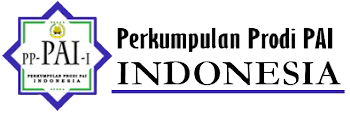Integrating Online Gamification into Islamic Religious Education in Indonesian Elementary Schools
DOI:
https://doi.org/10.19109/pair.v7i4.31796Keywords:
Online Gamification, Islamic Religious Education, Digital Pedagogy, Moral Learning, Student EngagementAbstract
The advancement of educational technology has opened new opportunities for digital innovation in Islamic Religious Education (IRE). This study aims to analyze the implementation of online gamification in IRE at SD Negeri 3 Ngadirgo, Semarang, and its influence on students’ engagement, motivation, and moral internalization. Using a qualitative descriptive approach, data were collected through classroom observations, interviews with teachers, students, and the principal, as well as an analysis of instructional documents. The findings indicate that digital platforms such as Wordwall, Quizizz, Canva, and Wheel of Names effectively enhance students’ enthusiasm, participation, and moral awareness, particularly values of honesty, responsibility, and ukhuwah islamiyah (Islamic brotherhood). Teachers demonstrated pedagogical readiness by designing game-based lessons aligned with the moral objectives of IRE. Institutional support, including digital infrastructure, teacher collaboration, and visionary leadership, further strengthened the sustainability of innovation. This study concludes that online gamification can serve as a modern form of ta’dib (moral cultivation), integrating digital creativity with spiritual formation. It contributes to the development of the digital faith pedagogy framework, emphasizing that technology, when guided by ethical and spiritual purposes, can become a catalyst for value-based learning in Islamic education.
References
Ahmad, A, R Fauzi, and N. Zainuddin. “Gamification and Moral Education in Islamic Schools: A Systematic Review.” Journal of Moral Education 51, no. 3 (2022): 276–290.
Ahmad, A, R Fauzi, and N Zainuddin. “Gamification and Moral Education in Islamic Schools.” Journal of Moral Education 51, no. 3 (2022): 276–290.
Al-Attas, S. M. N. “The Concept of Education in Islam: A Framework for an Islamic Philosophy of Education.” International Institute of Islamic Thought and Civilization, 2018.
Al-Ghazali, A. H. The Revival of the Religious Sciences (Ihya’ ‘Ulum Al-Din). Islamic Texts Society, 2019.
Biggs, J, and Tang. Teaching for Quality Learning at University (4th Ed.). McGraw-Hill, 2011.
Braun, V, and V Clarke. “Reflecting on Reflexive Thematic Analysis.” Qualitative Research in Sport, Exercise and Health 11, no. 4 (2019): 589–597.
———. “Reflecting on Reflexive Thematic Analysis.” Qualitative Research in Sport, Exercise and Health 11, no. 4 (2019): 589–597.
Creswell, J W, and C N Poth. Qualitative Inquiry and Research Design: Choosing among Five Approaches (4th Ed.). Thousand Oaks: CA: SAGE Publications, 2018.
Fauzi, R, N Hasanah, and R Lubis. “Digital Gamification in Islamic Education.” Education and Information Technologies 28, no. 4 (2023): 4231–4250.
Field Interview. “School Principal of SD Negeri 3 Ngadirgo,” n.d.
Fullan, M. The New Meaning of Educational Change (5th Ed.). Teachers College Press, 2016.
Hamari, J, J Koivisto, and H Sarsa. “Does Gamification Work?” Computers in Human Behavior 10, no. 2 (2019): 97–114.
Hew, K. F., B. Huang, and D. K. W Chiu. “Engaging Students in Gamified Learning.” Educational Research Review 3, no. 7 (2022): 100484.
Izutsu, T. Ethico-Religious Concepts in the Qur’an. McGill-Queen’s University Press, 2015.
Kamali, M. H. “Shura or Mutual Consultation and Good Governance: An Islamic Perspective.” Islamic Research Institute, 2010.
Kordzadeh, N. Ghasemaghaei, M. “The Role of Gamification in Moral Motivation and Engagement.” Computers & Education 17, no. 5 (2021): 104340.
Köse, A, and H Arslan. “The Emotional Dimension of Religious Education and Student Engagement.” Religions 13, no. 11 (2022): 1093.
Leithwood, K, and J Sun. “Transformational School Leadership and Organizational Learning.” Educational Administration Quarterly 54, no. 3 (2018): 393–418.
Lincoln, Y. S, and E. G Guba. Naturalistic Inquiry. SAGE Publications, 1985.
Mahmood, S. “Reflective Learning in Islamic Pedagogy: Reinterpreting Tadabbur in Modern Classrooms.” Religions 11, no. 8 (2020): 403.
Merriam, S. B, and E. J. Tisdell. Qualitative Research: A Guide to Design and Implementation (4th Ed.). Jossey-Bass, 2016.
Merriam, S. B, and E. J Tisdell. Qualitative Research: A Guide to Design and Implementation (4th Ed.). Jossey-Bass, 2016.
Ministry of Education, Culture, Research and Technology. “Merdeka Belajar Policy Framework.” Jakarta: Kemendikbudristek, 2020.
Observation Data. “SD Negeri 3 Ngadirgo.” Semarang, n.d.
Rahim, A, E Latipah, and N Zainuddin. “Digital Literacy and Islamic Values in Indonesian Education.” Education and Information Technologies 27, no. 10 (2022): 14173–14189.
Ryan, R. M, and E. L Deci. Self-Determination Theory: Basic Psychological Needs in Motivation, Development, and Wellness. Guilford Press, 2017.
Subhash, S, and E Cudney. “Gamified Learning in Education: A Systematic Review.” Computers & Education 12 (2018): 65–79.
Syafi’i, Imam, Muhammad Sulaiman, Achmad Anwar Abidin, and Dony Darma Sagita. SULUK KASIH: Jalan Lembut Mendidik Remaja Dalam Bingkai Islam. Inoffast Publishing Indonesia, 2025.
Syafii, I. “Innovation of Islamic Wasathiyah Education Methods: Transformation of Da’wah in the Contemporary Era.” Indonesian Research Journal in Education| IRJE| 9, no. 2 (2025): 963–76. https://doi.org/10.22437/irje.v9i02.42992.
Zainuddin, N, M. F Zulkifli, and R. Fauzi. “Digital Faith Pedagogy in Southeast Asian Islamic Education.” Education and Information Technologies 28, no. 12 (2023): 17845–17861.












.png)


1.png)



